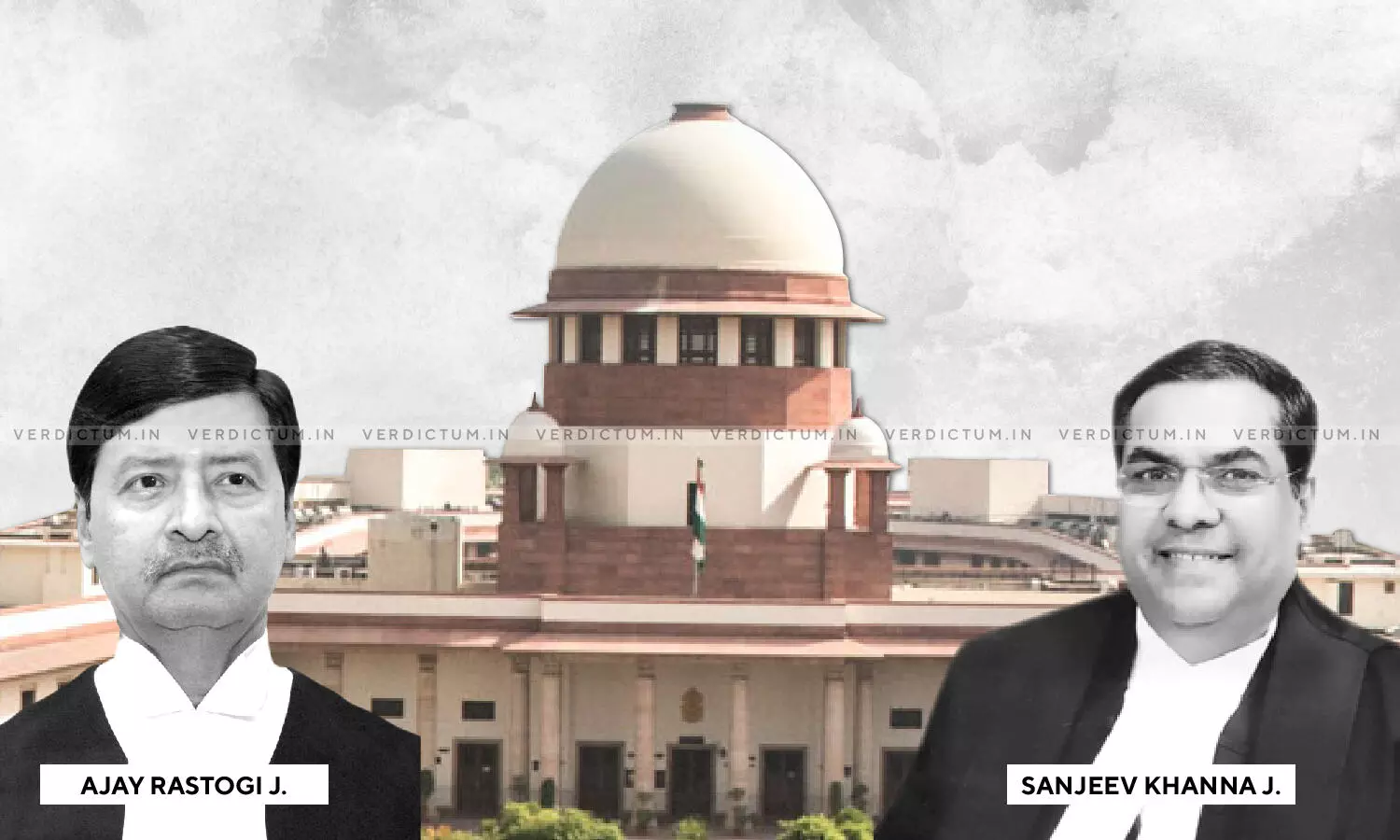
Mere Suppression Of Material/False Information Cannot Lead To Termination Of Employee From Service - SC Reiterates
 |
|The Supreme Court recently set aside the judgment and allowed an appeal directed against the judgment and order passed by the Division Bench of the Delhi High Court.
The Apex Court reiterated the observation of Avtar Singh Vs. Union of India, that mere suppression of material/false information regardless of the fact whether there is a conviction or acquittal has been recorded, the employee/recruit is not to be discharged/terminated axiomatically from service just by a stroke of a pen.
The Apex Court bench comprising of Justice Ajay Rastogi and Justice Sanjiv Khanna heard the petition and the facts which arose when the employment notice for appointment to the post of Constable in the Railway Protection Force including Railway Police Special Force was published. The appellant submitted the application form and participated in the selection process and after qualifying, the written exam and physical efficiency test was sent for training. While the appellant was undergoing training he was discharged by invoking clause 9(f) of the employment notice and Rule 67.2 of the RPF Rules 1987.
The discharge became the subject matter for a challenge in the High Court where it came on record that an FIR was filed against the appellant and a chargesheet was also filed against him. It was found that it was a false case registered against him and the appellant was honorably acquitted but this was not disclosed by him which led to the discharge of the appellant. The High Court on the basis of this fact dismissed the writ petition.
The Supreme Court had observed that when the appellant had filled the application form there was no case filed against him but after that, a false case was filed against him which he failed to mention in the attestation form where he mentioned "No" when he was asked to disclose as to whether he has ever been arrested or has been prosecuted.
The Bench observed, "at the time of attestation form filled by the appellant, the criminal case was already registered against him but it may be noticed that at the very threshold, the complainant filed his affidavit that the complaint on which FIR came to be registered was due to misunderstanding and he did not want to pursue his case any further, but still chargesheet came to be filed and on the first date of hearing, the alleged victim did not support case of the prosecution and thus the order of clean acquittal came to be passed by the learned Judge of competent jurisdiction."
Allowing the appeal, the Supreme Court observed that, "the order of discharge passed by the competent authority is not sustainable and in sequel thereto the judgment passed by the Division Bench of High Court of Delhi does not hold good and deserves to be set aside."
The Court directed the respondent to reinstate the appellant in service on the post of Constable on which he was selected.
Click here to read/download the Judgment